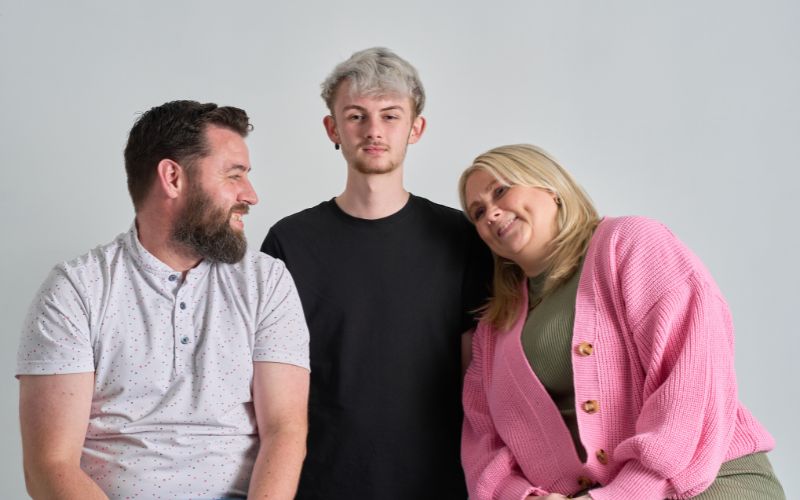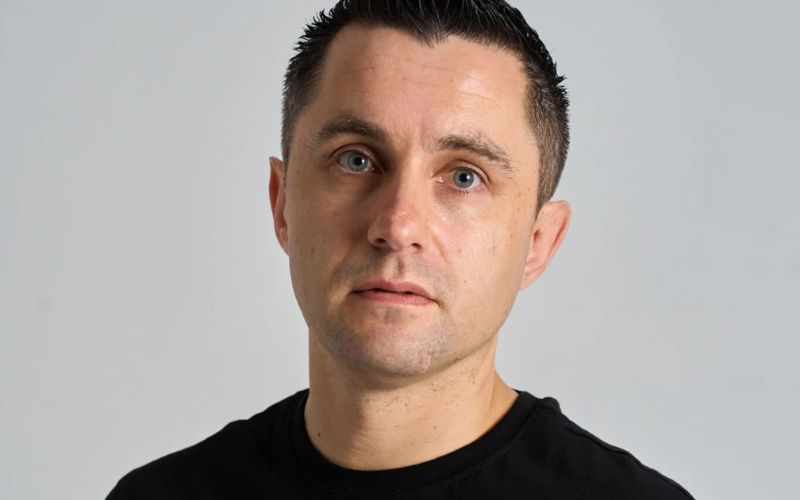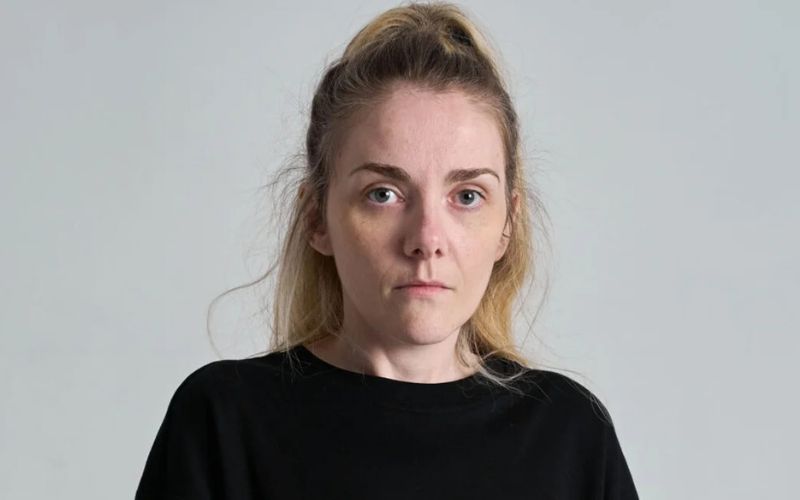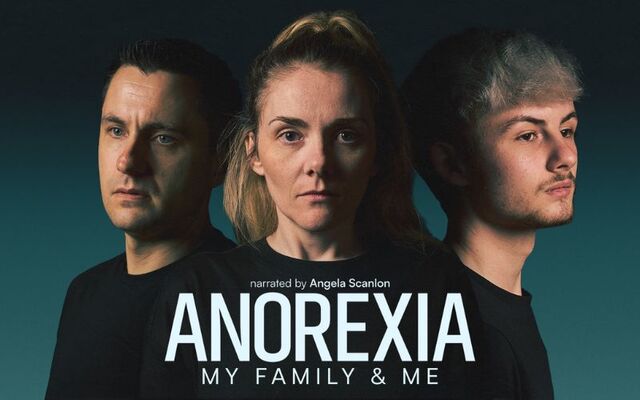A new documentary "Anorexia, My Family & Me" will air tonight, October 14, at 9:35 pm in Ireland on RTÉ One and RTÉ Player.
Narrated by Angela Scanlon, who has overcome her own challenges with an eating disorder, the documentary delves into the lives of Irish families grappling with the profound effects of anorexia.
With cases of eating disorders in Ireland on the rise, the documentary contains unprecedented access to unfolding stories, presenting the raw and emotional experiences of families across the country.
Viewers will meet 16-year-old Josh, 42-year-old dad of four Sean, 36-year-old Amanda, and their families who offer a personal look at the realities of living with this most fatal of mental health conditions.
Angela Scanlon narrates this documentary delving into the lives of three families grappling with the profound effects of eating disorders.#AnorexiaMyFamilyAndMe airs tonight at 9.50pm on @rteone and @RTEplayer pic.twitter.com/l05PTAbjJo
— RTÉ One (@RTEOne) October 14, 2024
The documentary highlights Wicklow-based mum Jenny, who is fighting tirelessly to secure treatment for her 16-year-old son, Josh, who is consistently losing weight as he battles the devastating grip of anorexia.
Speaking about his eating disorder, Josh explains: “It's just very dangerous. Everything in your body that makes it tick could start to drop. And if some of them drop too low, it's very big, fatal risks that can come with it. I'm feeling pretty scared and disappointed in myself because I feel like I was the one who let this happen.”
During the course of the documentary, viewers will see Josh hospitalized for 67 days before he is discharged to the family home.
His mum Jenny says: “No amount of almost begging at that stage to get Josh to eat was working and I couldn't get in there, you know, get into whatever was starting to build up around Josh. I couldn't get in.
"I never thought that anorexia would come into our home. I had no idea what was going to happen.”
Josh describes his hospital stay: “I needed to go into the hospital to try and just help with getting myself back into a healthier place. Physically, I probably wouldn't have lasted too much longer. In one day, I would probably have collapsed seven times. I would have massive gaps in my memory and I would have like, no ability to move.
"Sometimes, like, I believe that it's good to try and eat to get better, but there's still a part of me that's being dragged down like, no, it's not. And so I do still feel very conflicted and being pulled at both ends to try to eat or not.”
Josh’s mum Jenny articulates her worries for Josh and his two sisters: “There's a definite feeling that you're headed to battle most days. None of this is sustainable. Like, we have no idea what this malnutrition has done to Josh's brain.
"I worry that the girls are so deeply affected by this, that it could result in one of them getting an eating disorder, both of them getting an eating disorder.
"Mental health services are so stretched that they just can't help every child. It's so difficult to get into the service because there's so many children who are trying to get in. Had Josh gotten into the service sooner, would we be here? I don't know.”

Josh, center, with his parents. (RTE)
Busting commonly held misconceptions about those who suffer from the condition, viewers will meet Sean, a 42-year-old father of four from Swords who has battled anorexia for over a decade. His struggle with the disorder, including an addiction to running, nearly consumed him before he found the lifesaving help he desperately needed. The documentary follows his tentative steps in his recovery journey.
Sean says: “I don't remember when I could last wear my wedding ring on my wedding finger. Over the years, it became so loose that it would fall off. It’s closure in a way that I'm going to wear this wedding ring. It's another big step for me in recovery.
"Even since I've started recovery and I know I do look better and I have put on weight, people still look at you and think, oh, he's great. Look, he's doing well, you're doing well, but they don't know what's going on inside your head.”
Sean explains how he became addicted to running: “I could have been out any night running and drop dead. I was just completely gone. Walking upstairs was tough. Very light headed all the time. Memory gone. In so much hunger pain.
"You run more. You want to be nothing. You want to just be as thin. It's because you just want to disappear. Because you don't believe that you are worthy.”

Sean. (RTE)
We also follow 36-year-old Amanda, who's suffered from the condition for over a decade, and her mother Doreen. Viewers will be on Amanda’s shoulder as she lives with the constant debilitating daily reality of anorexia. Her condition is so entrenched that she is often on the verge of hospitalisation, offering a stark reminder of the life-threatening nature of the disorder.
Amanda admits: "Doctors have told me that I'm going to die if this continues."
In one scene, viewers watch Amanda struggle to drink a food supplement. She says: “Just my head, just like. Even though it's like small looks. Only small. You feel kind of guilty for having it? Because your head is telling you that you're already fat and you don't need it. You don't need extra calories and you don't. So yeah, just an argument in my head all time.”
Amanda’s mother Doreen worries about her collapsing in her bedroom: “I look at her sometimes I think she doesn't look well, but then I don't open my mouth to her. If I say anything she'll get annoyed. You know she'd (say), there's nothing wrong with me.
"What do you do from there? You know. Like it is sad. Don't get me wrong. I'd be brokenhearted over her. I just want her to get better. I don't want to get upset because I don't want to upset her. but that's just the way it is. Whatever happened to her I want it to go away and give who she was back to us.”
Amanda recounts a hospital stay earlier this year: “The psychiatrist asked me if I would come to hospital to be medically stabilized, because I was having a lot of hypoglycemic attacks, and it was getting really difficult to manage my blood sugars. They told me there was no way that I was leaving the hospital that day. And you will die if you go home if you try and leave this hospital. We will legally keep you here.
"Before I knew it, I was detained there at the hospital, against my will. I would end up being physically restrained. I was being set against my will. I just felt like a wild animal. I fought for those doctors with every piece of me I was sedated so many times because I was so distressed. Everybody in the hospital had to do what they had to do to keep me alive.
"Sometimes part of me that thinks back to that time, I think, I wish they didn't save me. I wish they had let me die.”

Amanda. (RTE)
"Anorexia, My Family & Me" features insights from leading experts in the field.
Dr. Kielty Oberlin and Harriet Parsons from Bodywhys: The Eating Disorders Association of Ireland provide a wider perspective on the issue, unpacking for the audience both the complexity of this illness and the struggles families face when trying to access care for their loved ones. They explore the systemic barriers that make it so difficult for many to get the treatment they need, but their insight into potential treatments offers hope that recovery is possible with the right support.




Comments